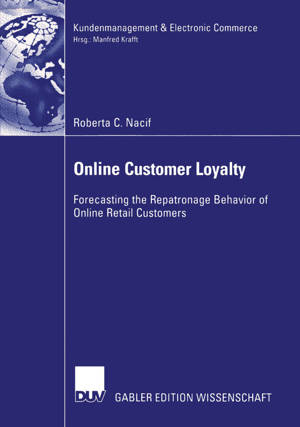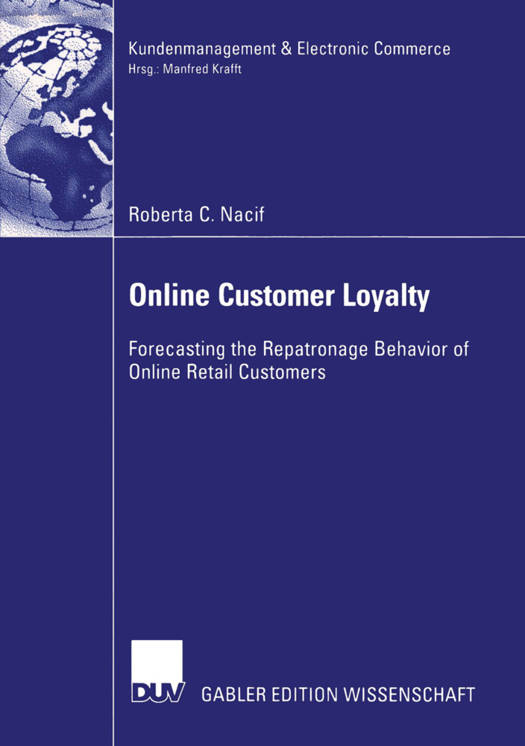
- Afhalen na 1 uur in een winkel met voorraad
- Gratis thuislevering in België vanaf € 30
- Ruim aanbod met 7 miljoen producten
- Afhalen na 1 uur in een winkel met voorraad
- Gratis thuislevering in België vanaf € 30
- Ruim aanbod met 7 miljoen producten
Zoeken
Online Customer Loyalty
Forecasting the Repatronage Behavior of Online Retail Customers
Roberta C Nacif
€ 105,45
+ 210 punten
Omschrijving
Over the last few years, companies paid more attention to managing custo mer relationships both effectively and efficiently. Among others, this led to an increased use of so-called self-service technologies (SSTs). For example, financial services are provided at lower costs and in an effective way through ATMs, airlines encourage their customers to use check-in machines, and on line retailers offer advice through low-cost media only. Such SSTs require hardly any personnel, and the customer him/herself so to say designs and provides the service. This development is reinforced by new telecommunica tion media and information technologies as well as by the increased diffusion of the Internet. Given that services play an important role in retaining custo mers, both academics and practitioners are interested in the question of how an increased use of SSTs affects repeat purchase behavior and the attitude of customers. From an theoretical point of view, only a few publications focused on the effects of customer satisfaction, SST quality, trust, self-stated behavi or, evaluation of a company's complaint management, customer knowledge about a firm's products and past purchasing behavior on repeat purchase in tentions and repatronage. This literature gap is prevalent both conceptually and empirically. Roberta Nacif, who submitted this book as her dissertation at WHU (Otto Beisheim Graduate School of Management), filled some of this gap with her work.
Specificaties
Betrokkenen
- Auteur(s):
- Uitgeverij:
Inhoud
- Aantal bladzijden:
- 361
- Taal:
- Engels
- Reeks:
Eigenschappen
- Productcode (EAN):
- 9783824479108
- Verschijningsdatum:
- 26/11/2003
- Uitvoering:
- Paperback
- Formaat:
- Trade paperback (VS)
- Afmetingen:
- 148 mm x 210 mm
- Gewicht:
- 458 g

Alleen bij Standaard Boekhandel
+ 210 punten op je klantenkaart van Standaard Boekhandel
Beoordelingen
We publiceren alleen reviews die voldoen aan de voorwaarden voor reviews. Bekijk onze voorwaarden voor reviews.











